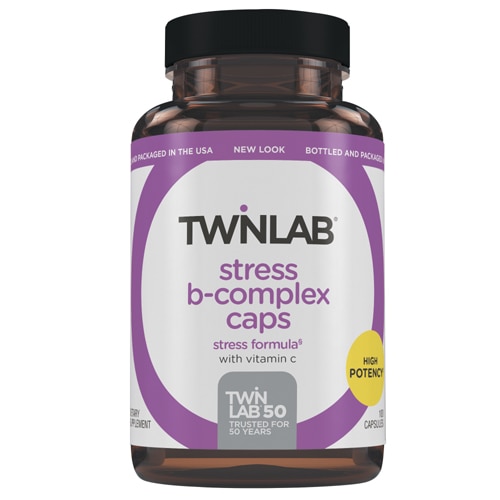[vc_row][vc_column][vc_column_text]Stress is a part of everyone’s life. Few of us sail through life without occasionally feeling any worry or frustration.
But for some people, stress can become debilitating. More than one-quarter of Americans -- 27% -- say they are
so stressed that they cannot function on most days, according to the American Psychological Association.
April is National Stress Awareness Month. The first step in reducing stress is to try to understand what it is and how it impacts your health.

Here are some of the most common types of stress – and what you can do to reduce their impact.
Types of stress and management tips
Acute stress
Acute stress is something most of us encounter nearly every day. In most cases, it flares up briefly before quickly subsiding.
"When you feel stress all of a sudden and it doesn't last too long, that's acute stress," says
Dr. Michael Kane, chief medical officer at the Indiana Center for Recovery.
If someone cuts you off in traffic, the burst of fear and rage you feel is acute stress. Other sources of acute stress might include:
- Hearing a sudden loud noise
- Getting into an argument with a loved one
- Struggling to meet a deadline at work
- Growing frustrated over our inability to find something
Generally, acute stress does not cause long-term damage to our health. We might feel anxious, angry or irritable. Perhaps we toss and turn in bed for a bit and have a rough night’s sleep. But the impacts of acute stress usually subside quickly.
In some cases, acute stress can even have a positive influence on us.
"Acute stress in short bursts can be beneficial because it prepares the body for 'fight or flight' responses," says
Dr. Clifford Feldman, a board-certified psychiatrist and medical director at Solace Treatment Center in Whittier, California.
Chronic stress
Chronic stress lasts for a long time. Rather than quickly subsiding like acute stress, chronic stress can leave us feeling under pressure for an extended period.
“If stress keeps hanging around for a long time, we call that chronic stress,” Kane says.
Eventually, the stress may cause us to feel overwhelmed, and that feeling can last for a long time.
“Chronic stress can have serious consequences for both physical and mental health,” Feldman says.
This type of stress can grow out of a number of situations, including:
- Troubles in our relationships
- Struggles with money
- Dealing with a supervisor at work who makes life miserable
- Ongoing physical or emotional abuse
People who endure chronic stress may have trouble focusing their thoughts and may begin to withdraw socially. Their energy levels might drop, and they can lose their appetite or begin to have stomach issues.
“Mentally, chronic stress can lead to anxiety, depression, and insomnia,” Feldman says. “It can impair cognitive functions, including concentration, decision-making and memory.”
Chronic stress also can lead to physical symptoms such as aches and pains. More serious physical health problems also can follow.
“Chronic stress can cause cardiovascular diseases such as hypertension and heart attacks because of the constant increase in arterial pressure,” Feldman says. “It can also weaken the immune system, making the body more vulnerable to infections and slowing the healing process.”
Kane says chronic stress can cause weight gain and high blood sugar levels, raising the risk of diabetes.
Many people who experience chronic stress feel trapped in their situation and don’t know how to escape it.
Eustress
Unlike the other forms of stress,
eustress is normally good for you. This is the type of stress that pushes you forward in life.
When you are struggling to finish an intense workout or feel butterflies during your first day of college, that is eustress at work.
Eustress might not always feel great in the moment. However, it helps you to pursue and achieve goals, builds resilience and ultimately results in a raft of benefits for you emotionally.
“It can really help you by making you feel more energetic, focused and ready to tackle challenges,” Kane says. “It's like a little cheerleader in your head saying, ‘You got this!’"
Feldman says eustress generally is linked to motivation, excitement, and energy, and it drives personal growth and achievement. However, eustress can also have a darker side.
“Even positive stress can become negative if it overwhelms an individual's ability to cope, or if there is not adequate time for rest and recovery,” Feldman says.
Signs that stress is impacting your health
A clear sign that stress is starting to affect your health is when it gets in the way of your being able to do things you have normally been able to do in the past, Kane says.
“For example, if you're always super tired, not interested in doing things with friends or family anymore, having trouble eating regularly or at all, or finding yourself feeling really anxious a lot, then these could be signs that stress is becoming a bigger problem for you,” he says.
Regular exposure to stress can cause a number of symptoms. Any of the following symptoms might indicate that stress is taking a toll on your health, Feldman says:
- Headaches
- Muscle tension
- Fatigue
- Changes in appetite
- Sleep disturbances
- Irritability
- Anxiety
- Depression
- Difficulty concentrating
Behavioral changes that can signal stress issues include increased alcohol or drug use, social withdrawal, and changes in work or school performance.
“It is critical to seek help when stress significantly impairs daily functioning, causes persistent feelings of overwhelm or hopelessness, or when one begins to rely on unhealthy coping mechanisms such as substance abuse,” Feldman says.
Tips for reducing stress
There are many ways to both
manage and reduce stress, Feldman says. “It's essential to find what works best for each individual,” he adds.
Eating right, exercising regularly and getting adequate amounts of sleep can help reduce stress.
“These practices help boost the body's natural resilience to stress,” Feldman says.
Other steps that might help reduce stress and its toll on your health include:
- Setting boundaries with work or personal relationships
- Prioritizing tasks and responsibilities
- Learning to say no when necessary
Cultivating
mindfulness practices and stress resilience techniques into your daily routine also can help.
“Mindfulness entails paying attention to the present moment without passing judgment, which can aid in breaking the cycle of rumination and worry that frequently accompany stress,” Feldman says.
In particular, he says two techniques -- mindfulness-based stress reduction (MBSR) and mindfulness-based cognitive therapy (MBCT) -- have been shown to reduce stress and improve
mental health.
If you are experiencing chronic stress or even simply struggling to cope with significant challenges or changes in your life, don’t feel you have to go it alone.
“It's important to pay attention to your body and mind and take action when needed,” Kane says.
Consider contacting a therapist or counselor “who can provide personalized strategies for managing stress,” Feldman says.
Regardless of how you tackle your stress, Feldman encourages you to reframe the challenges in your life so that you can use them to grow.
“Adopting a positive attitude toward challenges -- viewing them as opportunities for growth rather than threats -- can boost stress resilience,” he says. “Cultivating
gratitude, practicing self-compassion, and setting realistic goals are all beneficial ways to manage stress and improve mental health.”[/vc_column_text][/vc_column][/vc_row][vc_row][vc_column][vc_text_separator title="Featured Products" border_width="2"][vc_row_inner equal_height="yes" content_placement="middle" gap="35"][vc_column_inner width="1/3"][vc_single_image image="174252" img_size="full" alignment="center" onclick="custom_link" img_link_target="_blank" css=".vc_custom_1712781079050{padding-right: 7% !important;padding-left: 7% !important;}" link="https://www.vitacost.com/traditional-medicinals-organic-stress-ease-immune-with-adaptogens"][/vc_column_inner][vc_column_inner width="1/3"][vc_single_image image="174251" img_size="full" alignment="center" onclick="custom_link" img_link_target="_blank" css=".vc_custom_1712781266620{padding-right: 7% !important;padding-left: 7% !important;}" link="https://www.vitacost.com/life-extension-enhanced-stress-relief"][/vc_column_inner][vc_column_inner width="1/3"][vc_single_image image="174250" img_size="full" alignment="center" onclick="custom_link" img_link_target="_blank" css=".vc_custom_1712781328476{padding-right: 7% !important;padding-left: 7% !important;}" link="https://www.vitacost.com/suku-vitamins-buh-bye-stress-gummy-vitamins"][/vc_column_inner][/vc_row_inner][/vc_column][/vc_row]
 Here are some of the most common types of stress – and what you can do to reduce their impact.
Here are some of the most common types of stress – and what you can do to reduce their impact.



